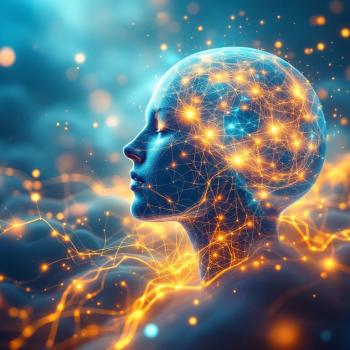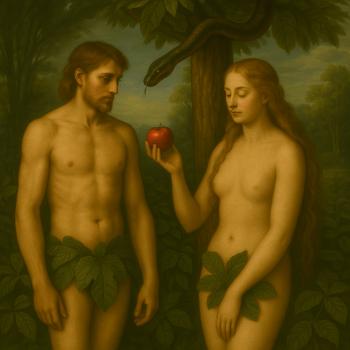In Conclave, author Robert Harris writes, “…The one sin I have come to fear more than any other is certainty. Certainty is the great enemy of unity. Certainty is the deadly enemy of tolerance.” Why are we so certain? Our conclusions flow naturally from our assumptions. But how can we be so certain about our assumptions? Have we tested them?

In The Way, I described my twenty-year spiritual deconstruction and reconstruction. The deconstruction was not angry or judgmental, and the reconstruction was not speculative or preachy.
The book examined Eastern and Western worldviews, largely focusing on the difference between a God that is personal and supernatural and a Universe that is impersonal and natural. I am agnostic on this question, as I am about most speculative questions.
So, I use a neutral term, Ultimate Reality, instead of the personal and supernatural term, God, or the impersonal and natural term, Universe. Also, I admit that I have NOT seen any evidence that Ultimate Reality is either personal or supernatural.
In my writing, I use the terms natural or physical to describe anything that we can explain using biology, chemistry and physics. In contrast, I use the terms supernatural or metaphysical to describe anything that we can NOT explain using biology, chemistry and physics.
Is Ultimate Reality Supernatural?
Some of us assume that Ultimate Reality is supernatural.
I do NOT embrace that position. In the past, our ancestors thought that we required supernatural explanations to explain natural things, like thunder and lightning. In the future, it is likely that our descendants will discover natural explanations for things that seem supernatural to us today.
When I write about science and spirituality, some readers will say, “Science explains the natural, and religion explains the supernatural.” Maybe, but that assumes there is something supernatural. I wrote about science and spirituality here and here and here. When I ask, “What is one thing that biology, chemistry and physics will NEVER explain?” there are no credible or definitive answers.
Imagine that you lost one of your legs, and you prayed for God to regrow your leg. There are no credible accounts that God ever regrew a leg. If it happened to you and you told your atheist friends, they might say that Mother Nature regrows animal legs often. “It’s natural,” they will tell you. “It’s just biology, chemistry, and physics.” Our conclusions flow naturally from our assumptions.
Is Ultimate Reality Natural?
Some of us assume that Ultimate Reality is natural.
I do NOT embrace that position, either. When I write about science and spirituality, some readers will say, “Science explains everything, and there is nothing supernatural.” Maybe, but that assumes that there is nothing that can NOT be explained.
When I ask, “How do you explain extra-sensory perception, near-death experiences, out-of-body experiences, past life recollections and premonitions?” there are no credible or definitive answers. Honest skeptics will admit that they have experienced some of these things, and they can NOT explain them. Maybe we can explain them in the future. Maybe not.
Also, honest skeptics will admit that they can NOT prove a negative. They can NOT prove that there is nothing supernatural, just like they can NOT prove that there are no unicorns. All the same, there are NOT many readers who believe that unicorns exist because the evidence does NOT support it.
The unicorn example is a good one. Sometimes, we leap from our assumptions to our conclusions without supporting them, like we accept our assumptions without challenging them. For example, we likely agree that some people have experiences near-death and that they are very similar and very profound experiences.
Does that prove what we experience after death? No, the evidence does NOT support it. Does that prove that we do NOT experience anything after death? No, the evidence does NOT support it. Unfortunately, until someone who is permanently dead comes back to tell us about it, we will NOT know anything about life after death. Our conclusions flow naturally from our assumptions.
Does Ultimate Reality Have Intention?
Some of us assume that Ultimate Reality has intention.
In The Way, I ask whether Ultimate Reality has intention. A theist might wonder if a personal and supernatural God could have created us, then just left us alone, without indicating any intention. An atheist might wonder how an impersonal natural Universe could even have intention.
Some think that God will love and protect us. God will lead us on the right path. God will punish or reward us. Others think that the Universe will nurture us and manifest what we need. Further, they think that the Universe will provide opportunities for us to learn and grow. The Universe will measure our progress and place us in another body in a future life.
How would any of this actually work in the God scenario or the Universe scenario? I wrote about why we believe what we believe here. Now, assume for now that there is no God, there are no rules, there is no purpose, we have no souls and we have no free will.
Assume that we are merely animals who live our mortal lives. We are clinging to a small rock hurtling through cold, dark, and endless space. We are experiencing fortune and misfortune alike. Further, assume that our lives are both joyful and sorrowful until our death or “lights out.”
In the end, we get stirred into the cosmic soup. Our matter and energy return to their source. Is such a Universe unimaginably terrifying?
Q: What would such a Universe look like?
A: That Universe would look EXACTLY like this Universe.
Of course, someone might say that a benevolent Universe (or a neutral Universe with a benevolent God) would be exactly like this Universe, too. They might even be able to convince skeptics if they could explain God’s hiddenness and God’s explosive temper, as well as the presence of evil. Our conclusions flow naturally from our assumptions.
Our Conclusions Flow Naturally from Our Assumptions
I write a lot about the lack of separation, which is common in nondual traditions like Buddhism, Taoism, and some forms of Hinduism. Although these traditions recognize apparent separation, they say that apparent separation co-exists within essential Oneness. Buddhism talks about Void or emptiness, Taoism talks about Tao or everything. Hinduism talks about Brahman or fullness.
The Abrahamic religions talk a lot about separation, beginning with the creation accounts in Genesis, the first book in the Hebrew Bible. God is “a part from us,” rather than God is “a part of us.” So, when I write about the lack of separation or nonduality, some readers will ask questions that assume a dualistic perspective:
“How do you explain good or evil?” I do NOT explain it. If we assume a lack of separation, “good” and “evil” are relative. Is it “good” when the lion eats the lamb? That depends on who you ask.
“How do you explain why we were created this way?” I do NOT explain it. If we assume a lack of separation, then there is NOT such a thing as a Creator or as “creation.” The Universe is eternal.
“How do you explain the existence of personal gods?” I do NOT explain it. If we assume a lack of separation, then there is NOT (essentially) such a thing as a person or a personal god.
“How do you explain the lack of meaning if there are no personal gods?” I do NOT explain it. If we assume a lack of separation, then “meaning” is relative.
“How do you explain God’s immanence and transcendence?” I do NOT explain it. If we assume a lack of separation, then Ultimate Reality is ever-present, not “inside” or “outside” of anyone.
Do you see that these questions smuggle in assumptions that prefer one worldview over another? Admittedly, some of the questions that I raise in my writing smuggle in assumptions, too.
The point is NOT to assert my perspective and to challenge other perspectives. Instead, we can focus on the assumptions. The point is that your assumptions might NOT make sense in my world, just like my assumptions might NOT make sense in your world. Ultimately, we can agree to disagree, rather than wasting our time pounding each other’s square pegs into our round holes.
Why are we so certain? Our conclusions flow naturally from our assumptions. But how can we be so certain about our assumptions? Have we tested them?












